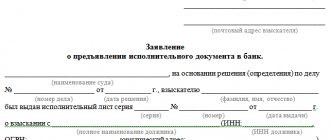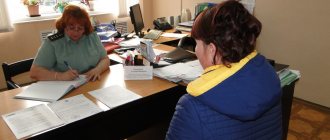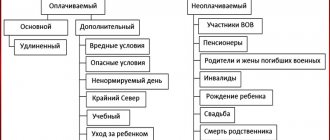Innovative technological achievements extend to the activities of all government bodies and systems. One of these innovations is the ability to conduct court hearings using video conferencing. Essentially, this is the same Skype, when the court is on one side of the screen, and the participant in the process is on the other. This opportunity has appeared not only in criminal courts, but also in civil and administrative proceedings. A participant in the process who participates in this type of meeting is subject to all the rights and obligations that would be granted to him in personal presence in the courtroom. To prepare a petition for video conferencing to the court, you need to find out whether the courts have the technical capability for this, as well as other nuances, which will be discussed below.
What is video conferencing?
Videoconferencing is an innovation in Russian legal practice, which makes it possible for an interested party to participate in the process, even if he does not have the physical ability to come to the meeting. Introduced into practice as part of the development program of the Russian judicial system. During the seven years of existence of this project, much has been achieved.
Not all courts are equipped with sufficient amounts of this equipment. There should be microphones, speakers, and web cameras in the hall. The participant's computer must have the appropriate software installed and sufficient hardware provided.
Audio and video information is transmitted via Internet connection channels. For this format of the meeting, it is necessary to submit a corresponding petition to the presiding judge. This must be done in advance. Participants in the process are notified of the time and place of the meeting using video conferencing in a standard way (agenda, SMS message, telephone message). The time and place of the main meeting and the time and place of the conference call will be announced.
An application can be submitted by:
- Direct participant in the process.
- Participant's representative.
- Witness.
- Expert.
- Translator.
- People who are in places of deprivation of liberty or in custody when it is impossible to transport such people.
The petition can be filed on behalf of oneself or another participant in the process. For example, the plaintiff or defendant will file such a petition in relation to their witness. The court can also come up with an initiative of this format on its own.
To obtain permission for this format of a court hearing, objective reasons for such a decision must be presented in the text of the petition. For example, if a participant in the process lives in another city, region, has a serious health condition, or is of advanced age. The circumstances must be supported by documentary evidence. For example, an extract from a hospital record, a copy of a passport, a copy of registration documents with a registration address.
Orenburg
Lawyer Eldar Sharafutdinov told 7x7 that the press and listeners were not allowed into the Orenburg courts until May 12; on May 4, a journalist was not allowed into the Leninsky District Court. The regional court “7x7” said that from May 12 they will allow the media in, but ask journalists to report their presence in advance.
– From May 12, both listeners and media representatives can come to the courts. However, we recommend that citizens refrain from attending court hearings for now if they are not participants in the proceedings,” press secretary of the Orenburg Regional Court Irina Sheludko told a 7x7 correspondent. – We ask media representatives to notify the courts’ press services in advance that they intend to attend a particular hearing.
How is the meeting going on?
The hearing takes place in several court buildings. The first is the main discussion. This is the court where the case will be decided. The participant in the process, who will participate remotely, comes in advance to the court that is selected for video conferencing. The judge of the second court checks the identity of the participant, his powers, passport, power of attorney, and explains the rights and obligations of the participant. They take a receipt from him that he has been warned of liability for knowingly giving false testimony. Later, such a receipt will be sent to the court, which is considering the case as the main one.
After completion of all formalities provided for by procedural law, the presiding officer and the secretary of the second court may leave the courtroom, and the participant remains in touch with the main courtroom and has the right to take part within the scope of his powers.
Otherwise, the hearing continues in accordance with the standards of the Civil Procedure Code, Code of Criminal Procedure, and Arbitration Procedure Code.
New mode of operation of courts
On May 11, the joint resolution of the Supreme Court of Russia and the Council of Judges of Russia on restrictive measures in the courts ceased to apply.
On May 7, the Supreme Court sent a letter to the regions, reminding them of the need to continue to observe sanitary safety measures: stay at a sufficient distance from each other and be sure to wear protective masks and gloves. The procedure for the work of the courts, as follows from the letter, must be determined independently, depending on the sanitary and epidemiological situation in a particular region.
The Supreme Court itself issued an order requiring visitors to come to its premises with masks and gloves from May 12. Those who do not have personal protective equipment are not allowed to attend meetings.
The Moscow Regional Court was one of the first to announce that it would allow only participants in the process to attend hearings. The courts of some other regions did the same. The Kaluga Regional Court does not allow anyone except participants in the trials. The Vologda Regional Court restricted entry for everyone except the participants in the trial, and referred to the regime of restrictions in the region until July 1.
In other regions, courts do not officially announce that only participants in trials are allowed to attend hearings. The website of the Penza Regional Court states that visitors are required to comply with access rules during the coronavirus epidemic. These include treating hands with an antiseptic, measuring temperature, and mandatory wearing of a mask. Similar requirements are posted on the website of the Arkhangelsk Regional Court. The Tambov Regional Court asks to comply with the recommendations of the Ministry of Health and Rospotrebnadzor, the Orenburg Regional Court allows visitors into the building.
The Arbitration Court of the Penza Region established a ban on the entry into the courthouse of persons who are not participants in the proceedings. The Arbitration Court of the Tambov Region allows only one representative from each participant in the trial; similar rules were published by the Arbitration Court of the Kaluga Region. Since May 12, the Arbitration Court of the Kirov Region has had a special procedure for organizing access control: no more than one representative from each party, entrance to the building is only for participants in the process.
On some court websites, for example on the website of the Kirov Regional Court, there is no information about restrictions for visitors. Some courts continue to hold online hearings in parallel with in-person hearings: the Supreme Court first tried them on April 21. Later, the practice was used by courts in the regions.
Lawyers, human rights activists and journalists in the regions complain about violations of their rights and access to open court hearings.
What legal provisions contain the right to use it?
For civil proceedings – Article 155.1 of the Civil Procedure Code.
Introduced into the Code in 2013. For the arbitration process - Article 142 of the Code of Arbitration Proceedings.For criminal proceedings – Article 278.1 of the Criminal Procedure Code.
How to write a petition correctly?
The petition is drawn up in the name of the presiding judge where the main proceedings in the case take place. The header indicates the case number, the applicant’s address, and his procedural status.
After the word “petition” the essence of the legal document is indicated. The main wording is about participation in a court hearing via video conferencing.
The main text begins with a description of the essence of the case under consideration, the date and time of the trial. The next point is to make a reference to the article of the relevant code, which provides the right to participate in court proceedings via video conferencing.
The main part of the document ends with a description of specific facts that prevent one from being personally present at the courthouse on the appointed day and time. After the main text, a petition is written, in which the applicant asks the court to provide the opportunity for a citizen (himself or another person) to participate in the court hearing on the case through the use of video conferencing. Indicate the court in which such participation is possible.
Documents that confirm the impossibility of the participant’s arrival are used as an attachment. The date of drawing up the petition and a living signature must be indicated. Without it, the document will not be valid.
In what cases can they refuse?
The refusal to hold this type of meeting is often justified by the lack of technical capabilities. That is, the court closest to the participant in the process is not equipped with the appropriate equipment. It is impossible to guarantee the quality of communication.
The refusal may be due to the fact that a different schedule has been assigned for the consideration of the main dispute in the declared court. Conducting video conferencing will disrupt the working hours of the room.
The refusal is also associated with the time difference if the participant in the process is in a different time zone.
Is it possible to appeal a refusal?
Refusal of such a request is a rather risky decision for the court. The fact is that a citizen’s personal participation in a dispute of interest is his legal right. Even the presence of a representative is not grounds for refusal. Later, the court decision can be overturned due to a violation of the citizen’s legal rights. The decision to reject the application itself cannot be appealed privately.
During appellate proceedings, it was often stated that a person's procedural rights were violated. This led to the reversal of the lower court's decision. This is also evidenced by the position of the Supreme Court, which in a number of its decisions criticized lower courts for such refusals. Ultimately, the courts themselves strive to organize such court hearings if the citizen has no other opportunity to participate.
Innovation itself is a positive achievement. However, many lawyers complain about the very low quality of video and audio transmission. This makes it impossible to objectively perceive the arguments of a participant in the process presented in this way. The party is deprived of the opportunity to understand the non-verbal signals of other participants and is in conditions of limited visibility.
Sign up for a consultation
Presence in an appeal in an arbitration case
The Arbitration Procedural Code regulates the consideration of cases in business disputes. This is mainly the relationship between individual entrepreneurs and legal entities within the framework of their business activities. Such disputes are considered by special arbitration courts (and not by courts of general jurisdiction).
Initially, the rules are the same as in the Civil Procedure Code: the judicial authority must notify the participants; without evidence of receipt of the notification, the court hearing does not begin. Paragraph 2 of Article 156 of the APC says that you can notify the judicial authority of your absence with a request to consider the case without you (representatives are sent from organizations, but you should always proceed from whether it was possible to send a replacement). If the non-appearing party subsequently claims that they did not receive proper notice, the judgment will be set aside.
The failure of the parties to appear is a reason to consider the case in their absence without giving valid reasons. This is the main difference from production within the framework of the Civil Procedure Code. The fact is that arbitration proceedings presuppose greater freedom and voluntariness than civil ones. The question is always about the material benefit of one side or another in the dispute, therefore, roughly speaking, it is their business whether to appear or not.
All these rules, by analogy with the law, apply to review on appeal. If you want, you pass, and the judge checks the decision without you. Only you can decide how satisfied you are with this outcome. Although now it is possible to participate in the meeting remotely, according to Article 153.1 of the Arbitration Procedure Code, using video conferencing. To do this, two conditions must coincide: your petition and the technical ability of the judicial authority to ensure such communication. Obstacles: the lack of such an opportunity, as well as the holding of a closed trial.
About these shady Federal State Budgetary Institutions and State Automated System “Justice”
...a couple of swindlers spent a billion dollars to create software for the State Automated System "Justice" system. And this turns out (which is natural, of course) to be just the tip of the iceberg. Today I came across an article that casually mentions the total cost of the scam of the century - 105 billion rubles (and these are not one-time expenses, but only a reason for the annual use of budget funds).
This, of course, is not the Sochi Olip-Zding or ESPO, but for a purely “office” cutting, the amount is huge. In addition, I emphasize that the sawing was carried out by werewolves in robes. ...The functions of the parent organization (service integrator) to support the State Automated System "Justice" instead of the Institution were actually performed by the commercial LLC "Orbita-service". Moreover, as the auditors established, the commercial sharashka received an order to... develop regulatory legal acts. Think about it - legal acts in the Russian Federation are developed by some kind of LLC ,
although this area of activity is a monopoly of state authorities. If this goes on, then the judges will be the businessmen who won the tender for the administration of justice, and prosecutorial powers will be leased to everyone. The history of GAS “Justice” began back in 2004, when “an open competition was held to select the lead executor to create the system. The only applicant and winner of the competition was the state system integrator - FSUE Scientific Research Institute "Voskhod", who also implemented the GAS "Elections", which gave results of 146%."
The authors of the article express concern that “the owners of several more contractor firms of the Institution are legal entities and individuals registered abroad, including in offshore zones
“, because “the presence of a foreign counterparty in a contractual relationship with the Institution creates risks of unauthorized access to the closed circuit of the State Automated System “Justice”, but I would first of all inquire about Yukhnevich’s Israeli passport. I estimate this probability to be at least 99%. By the way, Gusev, the permanent head of the judicial department, despite the fact that he is a civil servant, for some reason also does not consider it shameful to be a founder in commercial structures with an offshore scent.
..the initiators, designers, contractors and operators of the GAS “Justice” system are the same persons with “Israeli” noses and offshore financial pedigrees. The functionality of the system does not actually work. The functions of government agencies are farmed out to private contractors. Tens of billions of rubles went down the drain. All this has been going on for years. The results of the audit of the Accounts Chamber were brought to the attention of the leadership of the Supreme Court of the Russian Federation, which chose to quietly bury the topic: even for the sake of decency, they did not remove Gusev and Yukhnevich from office. In 2008, the Prosecutor General’s Office was already involved in Gusev’s affairs, but did not show persistence...
Judicial system of the Russian Federation Where is it?
Who are the judges?
There is no state in the Russian Federation. position of "judge".
There is a position of “federal court judge.” All decisions, determinations indicating the non-existent position of “judge” are VOID! Decree of the President of the Russian Federation of January 11, 1995 No. 32 “On government positions in the Russian Federation” established a Consolidated List of government positions in the Russian Federation. As of June 15, 2021, this list includes the following positions: LINK You can appeal court decisions!
Civil servants and persons holding public positions.
Some confusion has arisen due to the fact that in the Russian Federation there are two types of officials - civil servants and persons holding public positions.
I think that it is necessary to understand this in order to clearly understand what the “RF” is.
So - with civil servants everything is more or less clear - they serve the state. Who or what is our state is a separate question, but we can take the following definition: the state is an instrument of suppression by the ruling class of the oppressed class. No one will deny that in the Russian Federation there is a class society and at the moment we have a dictatorship of the bourgeoisie, covered by democracy, all sorts of elections, a multi-party system and so on. It’s much more interesting with “replacement persons.” We took the definition of the word “alternate” from a business dictionary, since we have this same “business” around and everywhere: ALTERNATE DIRECTOR A person who can temporarily perform directorial duties in the absence of the director of the company. The alternate director is introduced at a meeting of the board directors, if the articles of association of the company contain relevant provisions and if the other directors agree that the person is capable of fulfilling the duties assigned to him.
It’s already getting interesting - “temporarily performing duties in the absence of the director” - isn’t it an interesting formulation? It turns out that all officials who fill government positions are temporary workers appointed during the absence of those performing duties. The most important question is who are these people? Where are they located, who really controls the formation of the “state of the Russian Federation”? List of positions filled by temporary workers in the absence of the “owner” and explanation from Wiki.
Government positions of the Russian Federation are positions established by the Constitution of the Russian Federation, federal laws for the direct execution of the powers of federal government bodies, and positions established by the constitutions (charters), laws of the constituent entities of the Russian Federation for the direct execution of the powers of state bodies of the constituent entities of the Russian Federation[1].
The legal status of the persons replacing them is regulated by the Constitution of the Russian Federation, federal constitutional laws, and federal laws. Such persons are not considered federal civil servants, they are not assigned class ranks of the federal state civil service (but are assigned military and special ranks, diplomatic ranks, class ranks of law enforcement service). Government positions in the Russian Federation should be distinguished from positions in the civil service, as well as from government positions in the constituent entities of the Russian Federation. The latter are established by the constitutions (charters), laws of the constituent entities of the Russian Federation to ensure the execution of the powers of state bodies of the constituent entities of the Russian Federation. Decree of the President of the Russian Federation of January 11, 1995 No. 32 “On government positions in the Russian Federation” established a Consolidated List of government positions in the Russian Federation. As of June 15, 2021, this list includes the following positions[2]: LINK
As you can see, all the key figures are temporary workers who simply replace someone, who are executors of someone’s will. But not the “will of the people” - do not have any illusions. So what or who is our “state”?







